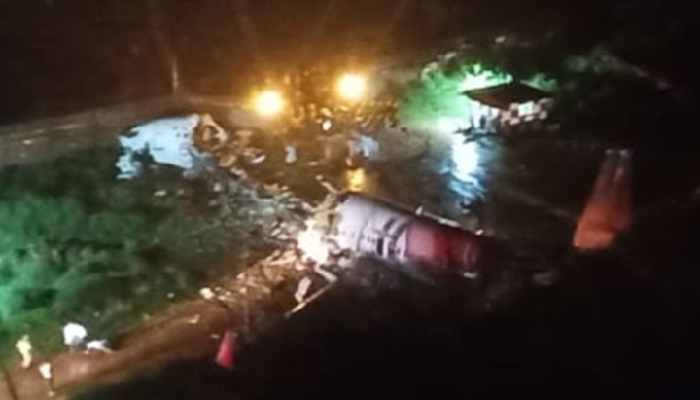Bhatinda, May 27: A top Indian Air Force official on Monday defended Prime Minister's Narendra Modi recent assertion that a rainy day was a better pick for Balakot strikes as the clouds could help fighter jets evade detection by Pakistani radars during the operation, by saying "very strong clouds and very strong convective conditions in clouds prevent the radar from detecting very accurately".
Modi made the remarks in a recent TV interview.
"That is true up to some effect that very strong clouds and very strong convective conditions in clouds prevent the radar from detecting very accurately", said Commanding-in-Chief, Western Air Command, Raghunath Nambiar while talking to ANI.
The officer was asked to react on Army Chief General Bipin Rawat's remarks yesterday in Kerala where he had defended Prime Minister's comments in this regard.
"There are various kinds of radars working with different technologies. Some have the capacity to see through, some don't have the capacity to see through. Some kinds of radar cannot see through clouds because of the manner in which it is operating. Sometimes we can, sometimes we can't," Rawat had reportedly said.
"The weather suddenly turned bad, there were clouds... heavy rain. There was a doubt about whether we can go in the clouds. During a review (of the Balakot plan), by and large, the opinion of experts was - what if we change the date. I had two issues in mind. One was secrecy, second, I said I am not someone who knows the science. I said there is so much cloud and rain. There is a benefit. I have raw wisdom, the clouds can benefit us too. We can escape the radar. Everyone was confused. Ultimately I said there are clouds... let's proceed," the Prime Minister had stated in an interview during election campaigning.
Twelve Mirage 2000s had crossed over to Pakistan on February and attacked a JeM terrorist training camp in Balakot in Khyber Pakhtunkhwa province to avenge the deadly Pulwama attack in which 44 CRPF personnel were killed.
A squadron of MiG-21 aircraft led by Air Chief Marshal BS Dhanoa on Monday flew in the Missing Man formation to pay tribute to Squadron Leader Ajay Ahuja who was killed in action in Operation Safed Sadar during the Kargil war. Air Marshal R Nambiar also took part in the exercise being held in the honour of the Kargil War martyr at the Indian Air Force base in Bhisiana.







Comments
DRI / IT departments got a serious job now.
now only solution.... but defend PM at any cost
Dear Sir,
To say this... how much you got???
Add new comment